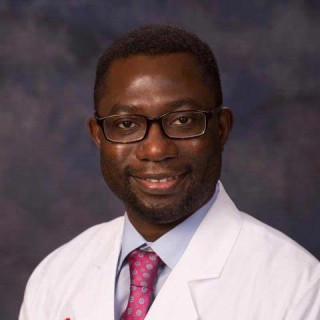My last encounter with him was over video. He was bedridden and too weak to make the trip to the clinic. Nevertheless, he sounded cheerful. He spoke with the same gentle courtesy I had come to know so well.
I first met him four years prior, when he came to me for consultation. His appearance belied his age and medical conditions. Despite years of treatment for Crohn’s disease, he had developed multiple strictures in his small bowel. During that first visit, we discussed his goals of care. I told him mine was simple: to keep him out of the ER and hospital. It wouldn’t be easy, but we shared the same vision for his care — a life as stable and comfortable as we could make it.
Over the years, we adjusted his medications multiple times. We celebrated small victories, like avoiding hospitalizations, and worked through setbacks. But as the years passed, his health deteriorated. He developed cancer that caused pain that high doses of opioids struggled to relieve. By the time of our video visit, the purpose of our conversation had shifted — no longer about keeping him out of the hospital but rather about providing relief for the severe constipation caused by opioids. I adjusted his bowel regimen to give him some measure of comfort, though I knew relief might be fleeting.
Less than a month later, I learned of his passing. Soon after, I received a handwritten card from his wife. The note was brief but heartfelt, thanking me for the care I had provided and for the compassion I had shown him over the years. I called her to express my condolences and to tell her how much I had admired him — his calm demeanor, his kindness, the way he treated everyone in the clinic with respect. She told me he thought the world of me and my medical assistant.
Her words have stayed with me, just like her thank you note, which now sits in my desk drawer. The experience made me pause and reflect: How do we measure a physician?
In modern medicine, we are surrounded by metrics meant to define our value and our success. Patient satisfaction scores — like the ubiquitous Press Ganey — seek to quantify how satisfied patients are with their care. Yet these scores often serve as proxies for an institution’s efficiency rather than for the skill or compassion of a physician. Patients might rate a physician highly because the parking was easy or the front desk staff was polite. Negative reviews may hinge more on logistical frustrations than the care patients received.
Another widely used metric is productivity. RVUs reduce the work of a physician to numbers: How many patients did you see? How many procedures did you perform? This measure rewards efficiency and volume but overlooks the nuance of quality. Did you truly listen to your patient? Did you relieve their suffering? Did you help them navigate a difficult decision? These questions, the essence of medicine, don’t translate easily into RVUs.
In academic medicine, the focus often shifts to scholarly achievements. Grants, academic awards, and fellowships to professional societies are held up as badges of excellence. While these are important, they rarely capture the day-to-day reality of patient care. For physicians working outside academia, such accolades feel even less relevant.
Some organizations sidestep these traditional metrics altogether, instead labeling certain physicians as "Top Doctors." These awards, bestowed by magazines or websites, rely on opaque criteria and lack validation. At best, they provide visibility; at worst, they reduce the complexity of physician excellence to little more than a popularity contest.
If none of these measures tell the full story, then what does?
The answer, I think, lies in the fundamental responsibility we take on as physicians: to relieve suffering.
The Hippocratic Oath reminds us that our duty is not always to cure — because a cure is not always possible — but to accompany our patients through the trials of illness and to provide comfort when a cure is out of reach. Most of the patients we care for, particularly those with chronic or life-limiting conditions, will never be cured. But they can still be cared for, listened to, and supported.
The ultimate measure of a physician is not in patient satisfaction scores, productivity metrics, or accolades. It is in the quiet moments: the way you guide a patient through a difficult choice, the relief you provide during their darkest hours, and the trust you build over time.
Not every patient will send a thank you note. Not every family will take the time to express their gratitude. But when they do, it is a reminder of the kind of impact we can have — not just as healers, but as human beings.
I think of that thank you note often. It doesn’t tell me how many patients I saw last month or what my RVUs were. But it reminds me of what truly matters: that even when I could not cure my patient, I helped to relieve his suffering. That, perhaps, is the only measure of a physician that matters.
Adewale Ajumobi is a physician leader and educator. He is passionate about developing both people and systems to address health care challenges. He can be reached on LinkedIn. All names and identifying information have been modified to protect patient privacy.
Image by fedrelena / GettyImages







